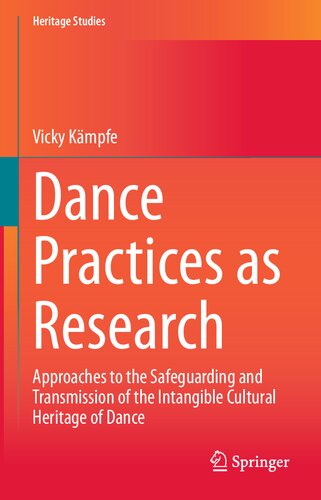

Most ebook files are in PDF format, so you can easily read them using various software such as Foxit Reader or directly on the Google Chrome browser.
Some ebook files are released by publishers in other formats such as .awz, .mobi, .epub, .fb2, etc. You may need to install specific software to read these formats on mobile/PC, such as Calibre.
Please read the tutorial at this link: https://ebookbell.com/faq
We offer FREE conversion to the popular formats you request; however, this may take some time. Therefore, right after payment, please email us, and we will try to provide the service as quickly as possible.
For some exceptional file formats or broken links (if any), please refrain from opening any disputes. Instead, email us first, and we will try to assist within a maximum of 6 hours.
EbookBell Team

0.0
0 reviewsThis book contributes to the growing scientific literature on ‘intangible cultural heritage’ – determined by UNESCO to be particularly worthy of safeguarding and transmission – by advancing a theoretical-analytical framework for the (in)tangible cultural heritage of dance. By exploring the potential of the ‘intangible materiality’ of dance practice the book argues that implementing the concept of a ‘performative dance-archive’ creates a new analytic field: research in praxis.
The concept of the ‘performative dance-archive’ draws out the potential for safeguarding and transmission of dance heritage, but also the challenges of the opposition between living heritage and the codifying of cultural inventories. This book uses the formal and contextual transformation of Argentine tango and German modern dance to discuss this ambiguity of intangible heritage and how the “performative dance-archive” creates a cognitive, empractical approach to determine, archive, and distribute dance knowledge.
This is a timely methodological intervention in the context of the increasing importance of the intangible cultural heritage. It enables us to re-revise the concept of (im)materiality and the specific knowledges within cultural practice as a necessary fundamental category for research-processes and societal growth. This book is directed both to researchers in the field of intangible cultural heritage and to practitioners and researchers searching for new ways of investigating methods and perspectives to understand 'immaterial materialities'.